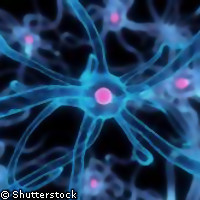Research provides better understanding of Alzheimer's
EU researchers have found a molecular link between Alzheimer's and the development of amyloid plaques, one of the hallmarks of the disease. This groundbreaking discovery is expected to help researchers in their quest to better understand the disease - a quest that has lasted for more than 15 years. The work, which was partly funded by the EU's Marie Curie programme, was recently published in the journal Proceedings of the National Academy of Sciences. Alzheimer's is the most common form of dementia in the Western world. The disease is a progressive disorder causing gradual loss of memory and changes in behaviour, communication skills and judgement which eventually render the sufferers incapable of looking after themselves. Unfortunately, all attempts to find a cure or treatment for Alzheimer's have so far been unsuccessful. A typical trait of the disease is the build up of amyloid plaques between nerve cells in the brain. Amyloids refer to protein fragments that the body produces normally, while beta-amyloid is a fragment of a protein that is snipped from another protein called amyloid precursor protein (APP). In a healthy brain, these protein fragments would be broken down and eliminated. In Alzheimer's disease, the fragments accumulate to form hard, insoluble plaques. Several years ago the process by which these amyloid plaques develop in the familial form of Alzheimer's disease was discovered by Professor Bart De Strooper from the Catholic University of Leuven (K.U.) in Belgium, who is also the head of the Department of Molecular and Developmental Genetics at the Flanders Institute for Biotechnology (VIB). The Belgian research team found that gamma-secretase, an enzyme that cuts proteins in a particular place, plays a major role in the development of plaques. Sometimes the gamma-secretase cleavage goes wrong, causing the creation of a by-product that sticks together and precipitates - thus forming the plaque. However, little is known about the development mechanism of these plaques. In this latest study, the researchers looked into the cause of the increase of beta-secretase (BACE1), an aspartic protease enzyme that is found in the brain cells of patients suffering from sporadic Alzheimer's. The VIB team examined the expression profiles of a number of miRNA -the short pieces of RNA that regulate the production of protein. Their work showed that patients that had increased amounts of BACE1 protein had less miR-29a and miR-29b-1. According to the research team, some miRNAs may play a key role in increasing BACE1 and in the development of plaques in the brains of patients suffering from Alzheimer's. This study shows the potential for developing an improved diagnostic test for the disease, the researchers say. Timely prescription of a number of medicines for this disease could result in a better patient response and improved well-being. What remains to be seen, however, is whether these miRNA could help stimulate the creation of a new drug.
Countries
Belgium



